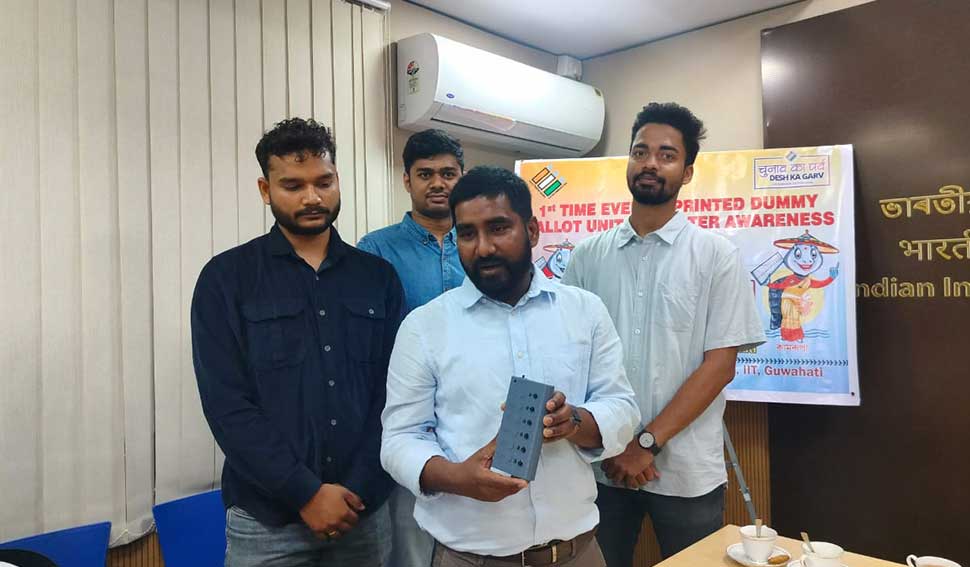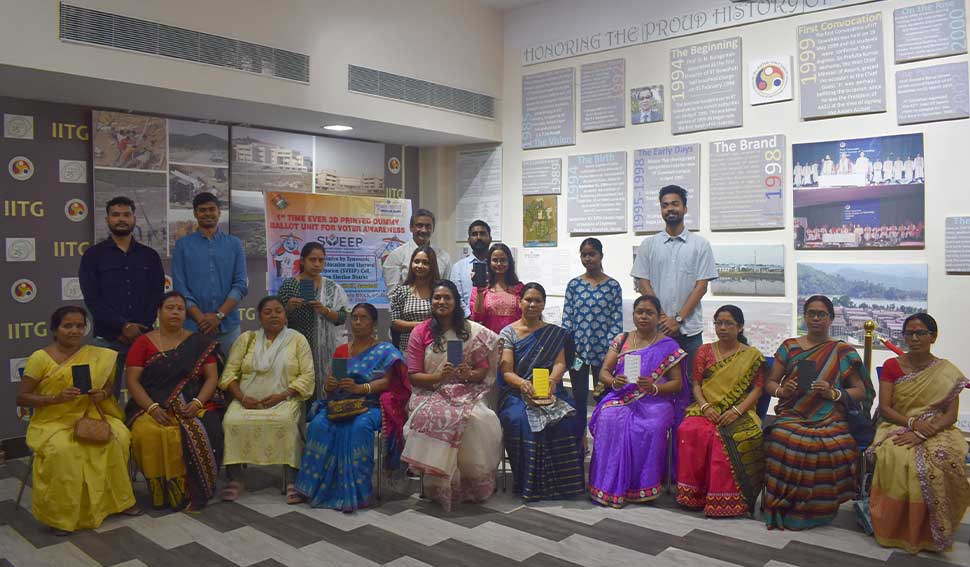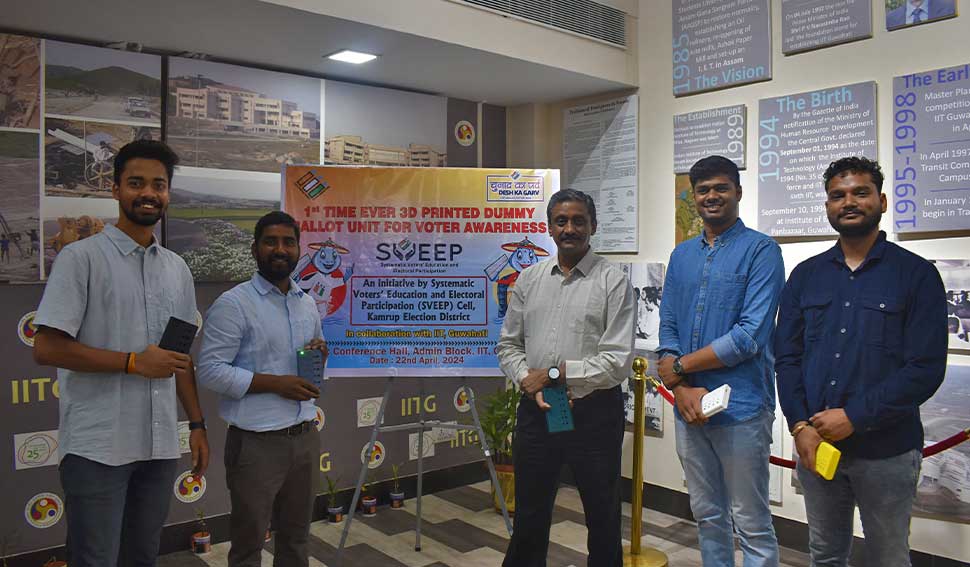IIT Guwahati unveils innovative 3D printed dummy ballot unit for voters’ education

In a pioneering initiative aimed at enhancing voter awareness and engagement, the Systematic Voters’ Education and Electoral Participation Cell (SVEEP) of Kamrup election district has partnered with the Indian Institute of Technology Guwahati (IITG) to develop an innovative 3D-printed dummy ballot unit.
SVEEP, an umbrella programme initiated by the Election Commission of India (ECI), is dedicated to educating voters about the electoral process. The collaboration between the SVEEP cell of Kamrup District and IIT Guwahati represents a notable milestone in voter education endeavours.
The Department of Design (DoD) at IIT Guwahati is dedicated to interdisciplinary research in engineering, product design, behavioural, and social sciences. Our focus is on creating impactful, usable, and enjoyable experiences with technology while understanding its societal impact. Through our programs, we aim to nurture leadership qualities in our graduates, equipping them to navigate dynamic environments with innovation and values at the forefront.
The 3D-printed dummy ballot unit was unveiled at the IIT Guwahati campus on Monday in the presence of Kamrup district commissioner Keerthi Jalli.
Kamrup additional DC Susanta Kumar Dutta, district development commissioner Susanta Kumar Dutta, North Guwahati circle officer Kamal Baruah, Boko circle officer (A) Mithinga Daimari, assisting officer, SVEEP Cell Soma Roy, IITG dean PRBR Parameswar K Iyer and assistant professor Prof. Ajeet Kumar were also present on the occasion.
Crafted to acquaint citizens, particularly new voters, and senior citizens, with the intricacies of voting procedures, the 3D-printed dummy ballot unit aims to dispel any apprehensions, anxiety or uncertainties associated with the voting process. By offering a hands-on experience, the dummy ballot unit endeavours to foster maximum voter participation.
Expressing appreciation for IIT Guwahati’s pioneering initiative, DC Keerthi Jalli said, “We commend IIT Guwahati for their collaboration and swift design and manufacturing of this highly practical tool. It is certain to aid individuals in gaining familiarity with the voting process, thereby bolstering their confidence, and encouraging greater participation in democratic practices.”
Utilizing cutting-edge 3D printing technology, the dummy ballot unit is fabricated from PLA (polylactic acid), a biodegradable and eco-friendly material derived from corn starch. In a remarkable feat, researchers at IIT Guwahati designed and manufactured the device within just 48 hours, incorporating interactive features such as sound and light as output indicators to assist users during the voting process.

This initiative marks the first-of-its-kind endeavour in India by the IIT Guwahati team to develop a 3D-printed dummy ballot unit. The use of PLA ensures that the dummy ballot unit is not only environmentally sustainable but also reusable, contributing to sustainable practices in voter education initiatives.
Reflecting on the significance of the developed ballot unit, , assistant professor Ajeet Kumar stated, “With its interactive features and biodegradable material, this innovative tool will serve as a valuable resource in educating citizens about the voting process. Our team at IIT Guwahati takes pride in having designed a solution that will empower people to participate in democracy with confidence.”
Commenting on IIT Guwahati’s collaboration with the SVEEP cell of Kamrup district, IIT dean Prof Parameswar K Iyer said, “Through this partnership, IIT Guwahati aims to ease anxiety and empower citizens with a deeper understanding of the voting process. The rapid design and manufacture of these portable ballot units using biodegradable polymer materials underscores the innovative spirit of the Institute’s design department. We are proud to partner with Kamrup district and introduce this major initiative for the success of democratic processes, which marks a significant step forward in voter awareness and education in India.”

Appreciating the initiatives of IIT Guwahati’s collaboration with Kamrup district, IITG director Prof Rajeev Ahuja said, “This project focuses on developing an educational electronic voting machine to familiarise users with the democratic process of our nation. By simulating real voting scenarios, we aim to enhance understanding and engagement with electoral systems prevailing presently and will replicate the voting process.”




Leave a Reply